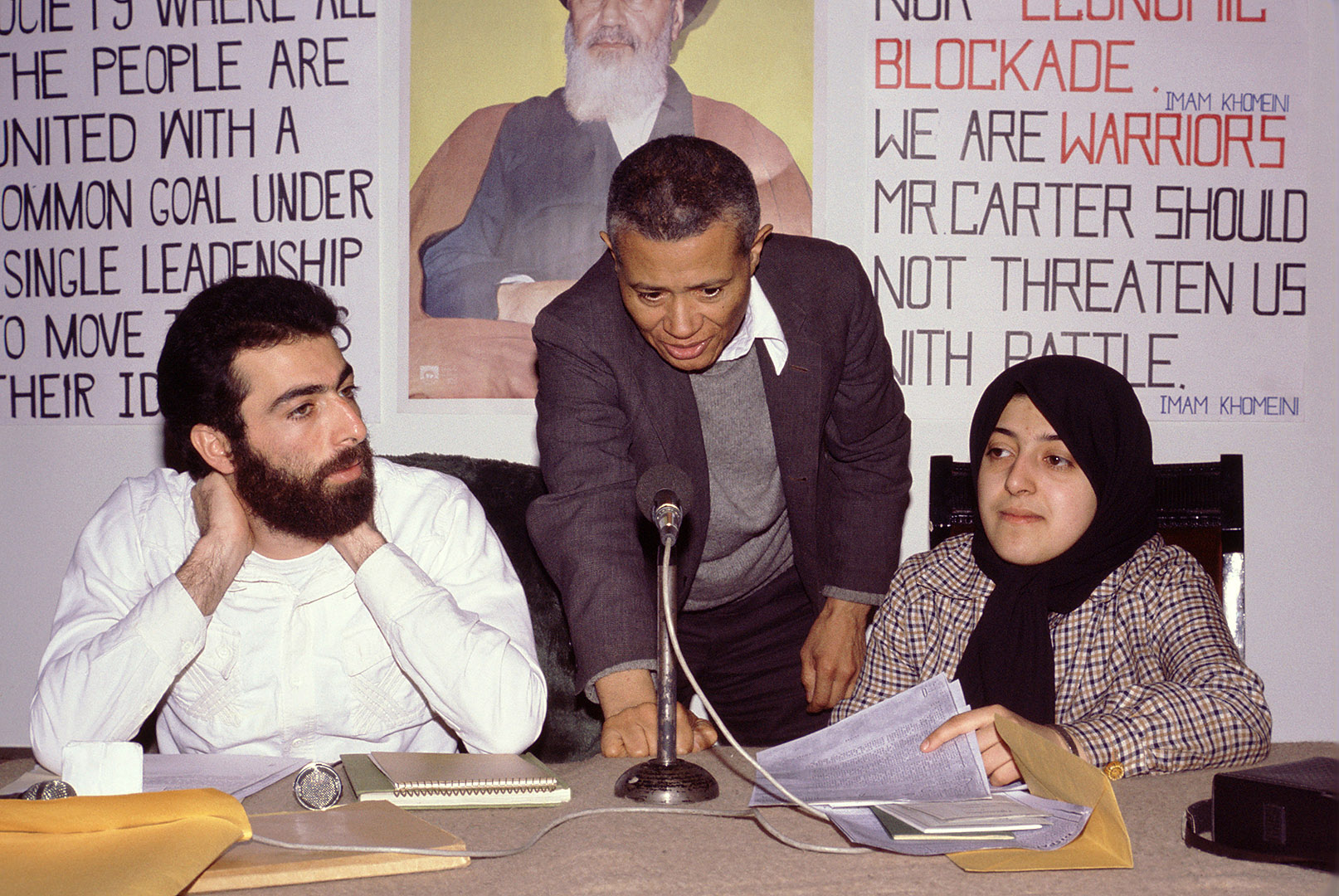
Bates Alumni and Students in the News: Aug. 30, 2024
A selection of recent mentions of Bates alumni and future alumni — Bates students — in the news media.
Edmund Muskie ’36
The lost history of what Americans knew about climate change in the 1960s — The Grist
Awareness of our warming planet began way earlier than most people think, according to a fascinating article in The Grist. “Plenty of…people were concerned about a warming planet, not just scientists, in the years before 1970,” says reporter Kate Yoder. That includes U.S. Sen. Edmund Muskie ’36 of Maine, a hero of the anti-pollution movement in the 1960s and 1970s.
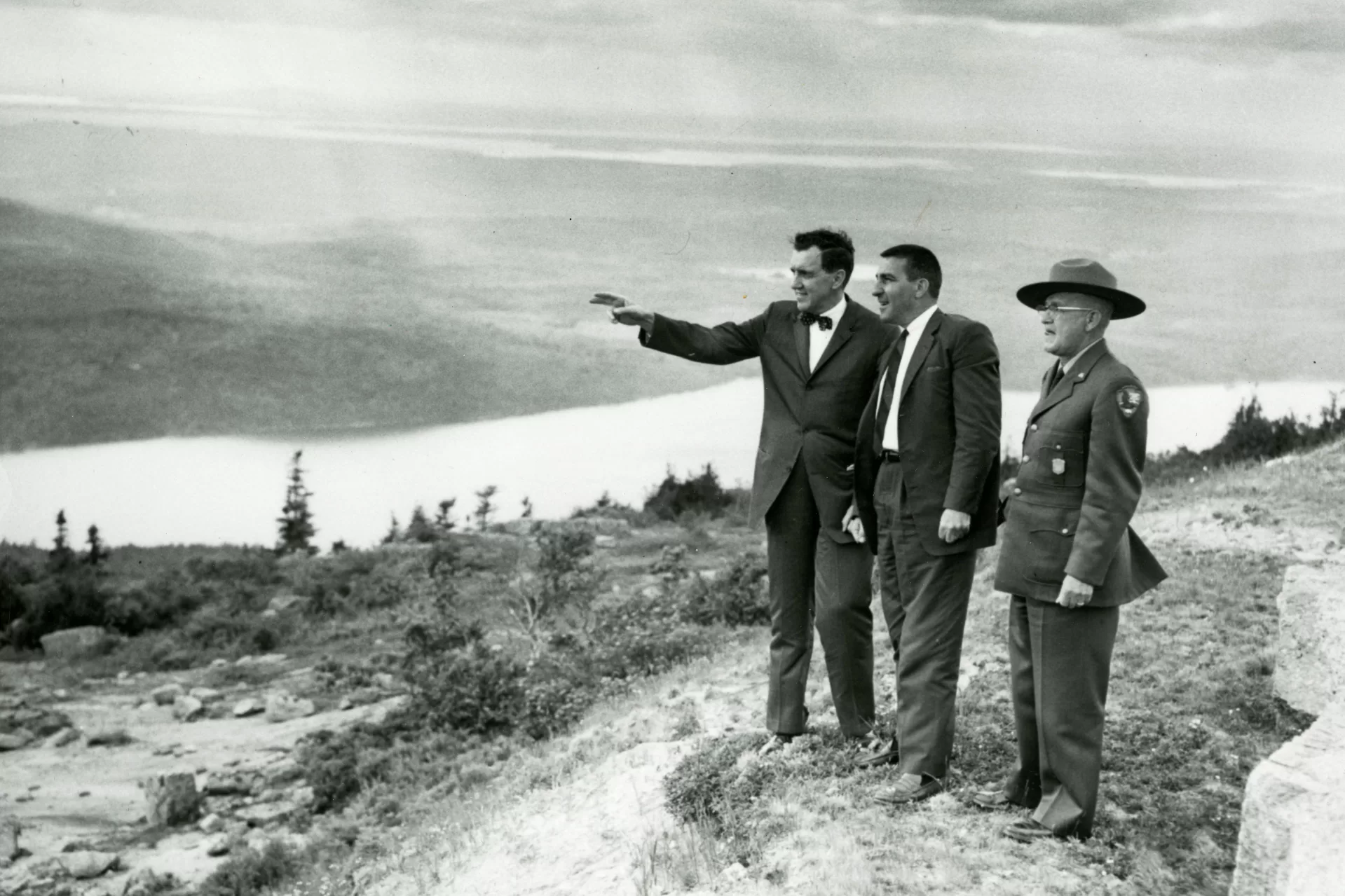
Reporting on a soon-to-be-published paper in the journal Ecology Law Quarterly, Yoder describes how Muskie’s papers at Bates provided the researchers with insights into the surprisingly widespread understanding of the perils of climate change.
“Muskie was deeply involved in conversations about climate change with scientists, and his staff tracked coverage of the topic closely in the press. In 1970, Muskie warned his fellow senators that if air pollution went unchecked, it would ‘threaten irreversible atmospheric and climatic changes.’”
Jean Johnson Bird ’51
A 94-year-old Waterville woman is a world traveler who has seen it all — Morning Sentinel
Maine’s Morning Sentinel interviewed Jean Johnson Bird ’51 after she received a Silver Status award from The Travelers’ Century Club for having visited 150 countries and territories.
Her first few countries on the road to 150 came shortly after graduating from Bates, when she and fellow students from Bates, Wellesley, Wesleyan, Dartmouth, and Yale traveled to Europe with the legendary Bates professor Rayborn Zerby.
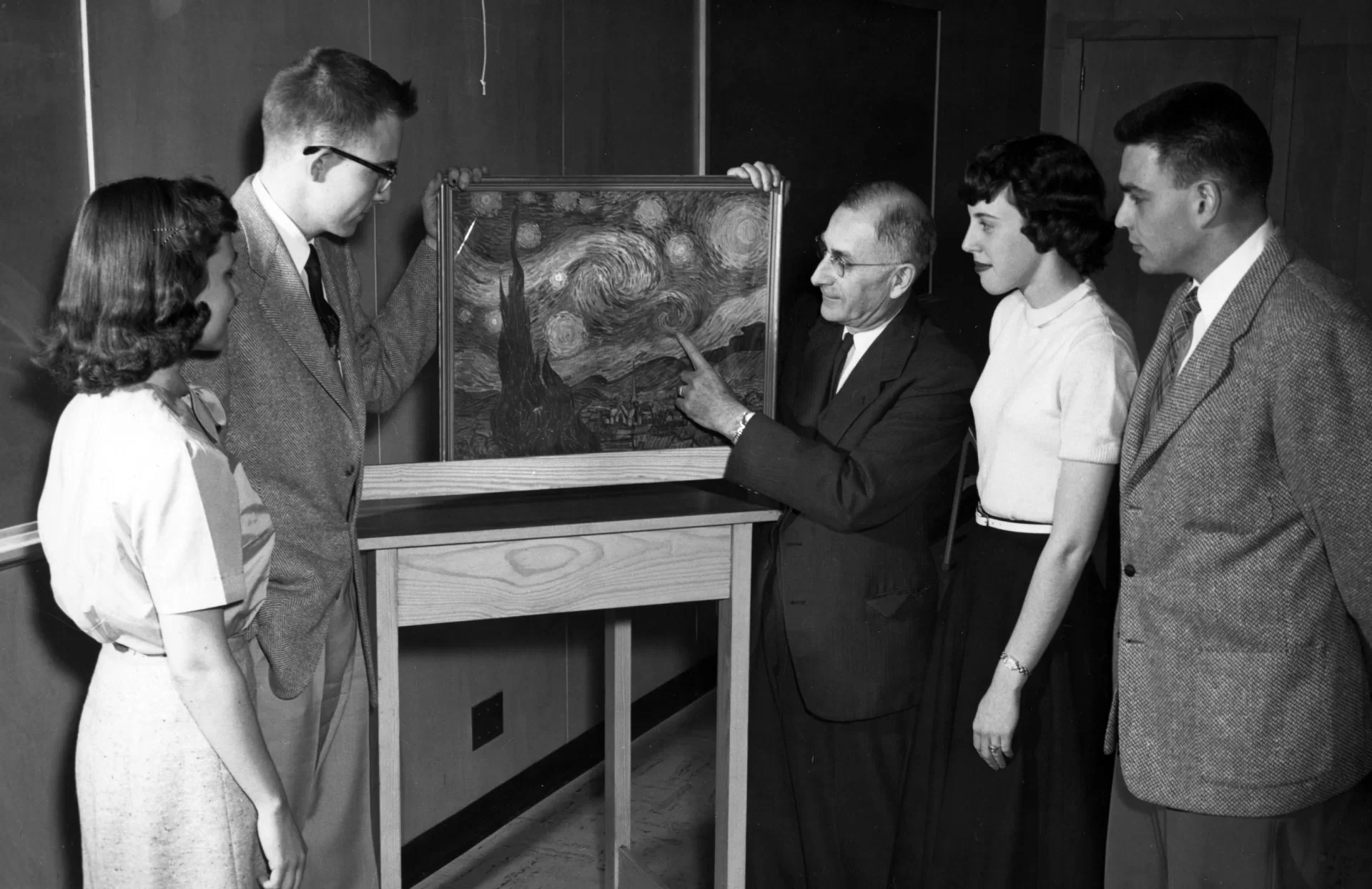
“We went by ship, you know. People didn’t travel by airplane then,” said Bird. “Cologne was devastated by World War II. We went to Switzerland and Capri, off Italy. I swam in the Blue Grotto. I jumped out of the boat and went swimming there.”
David López-Carr ’93
A planetary health innovation for disease, food, and water challenges in Africa — Nature
David López-Carr ‘93, a professor of geography at the University of California, Santa Barbara, has been in the news for an award-winner paper in Nature that offers a planetary health innovation to address disease, food, and water challenges in Africa.
López-Carr was part of an international team of biologists, social scientists, and medical researchers from the U.S. and Senegal that found a way to lower infection rates of the parasitic disease schistosomiasis by removing vegetation associated with a snail that plays host to the blood fluke. The removed plant material can be repurposed as cheap livestock feed and compost.
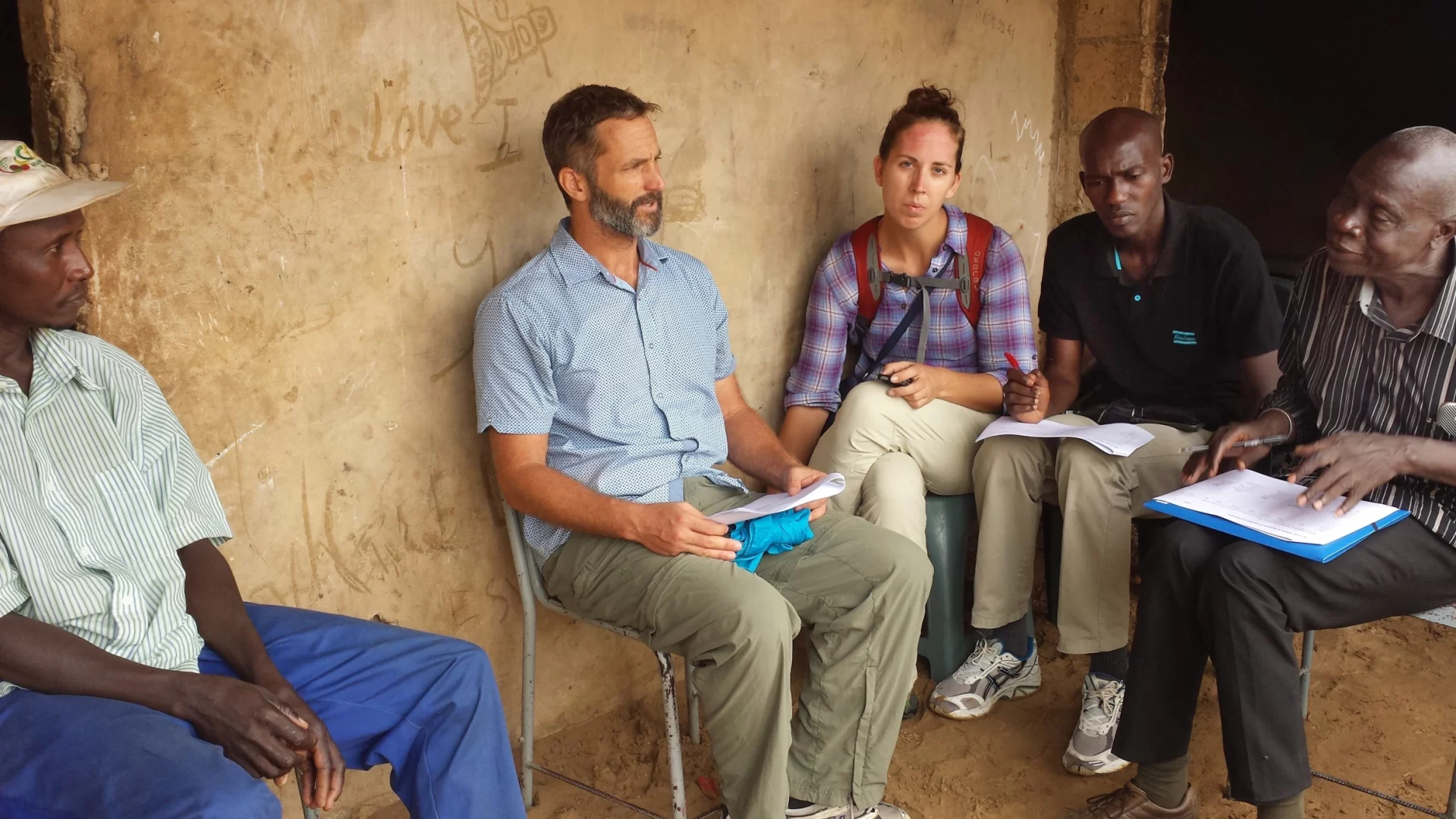
The team won a 2024 Sustainability Science Award from the Ecological Society of America, amog other honors. Individually, López-Carr received a 2024 Research Excellence Award from the Human Dimensions of Global Change and the 2024 CLAG Award from the Conference of Latin American Geography for two decades of teaching, research, and mentorship.
K-Fai Steele ’04
K-Fai Steele auctions rights to middle-grade graphic novel— Bleeding Cool
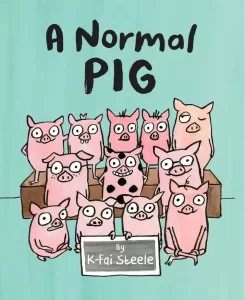
Best Buds, a middle-grade graphic novel by K-Fai Steele ’04, will be published by Kokila, an imprint of Penguin Random House, in spring 2026, according to Bleeding Cool.
The site describes Best Buds as “friendship that blooms between two girls over their love of gardening, library books, and crows, while exploring the roles they play in community care.”
It is Steele’s first graphic novel but hardly her first book: She’s the illustrator of seven prior children’s books and the author–illustrator of two. She lives in Stockholm, Sweden, with her family.
Nathan Diplock ’17
Plant Physiology spotlights First Authors — Plant Physiology
Emerging researcher Nathan Diplock ’17, who recently earned his Ph.D. at the University of California, Berkeley, was profiled as a “First Author” by the academic journal Plant Physiology.

Working with researchers at Berkeley and the University of Melbourne, Diplock served as first author of a paper that explores a plant protein called ZAR1, which helps to detect harmful bacteria. ZAR1 works by monitoring how another plant protein, ZED1, interacts with a bacterial protein from a common plant pathogen.
The research team identified an important mutation in ZED1 that allowed a tomato plant to use its version of ZAR1 to recognize the bacterial invader, a discovery that could lead to new ways to enhance plant immunity against bacterial infections.
Already the author of several papers, he told the Plant Physiology that “plants are capable of extraordinary physiology that can feel both familiar and foreign to the human experience. Plant science is our best tool to unravel these fascinating complexities.”
A Bates biology major who worked in the Lewis Lab at Berkeley, Diplock is now a research scientist at BluumBio, developing new technologies for phytoremediation and bioremediation of environmental contaminants.
Maple Buescher ’25
Kid reporters, now first-time presidential voters, on the coverage of Election 2024 — Columbia Journalism Review
Eight years ago, Maple Buescher ’25 of Cleveland Heights, Ohio, was a middle-school student reporting from the 2016 Republican National Conventions for Time for Kids.
A story in the Columbia Journalism Review circles back to Buescher and another former Time for Kids reporter about their take on this year’s election.
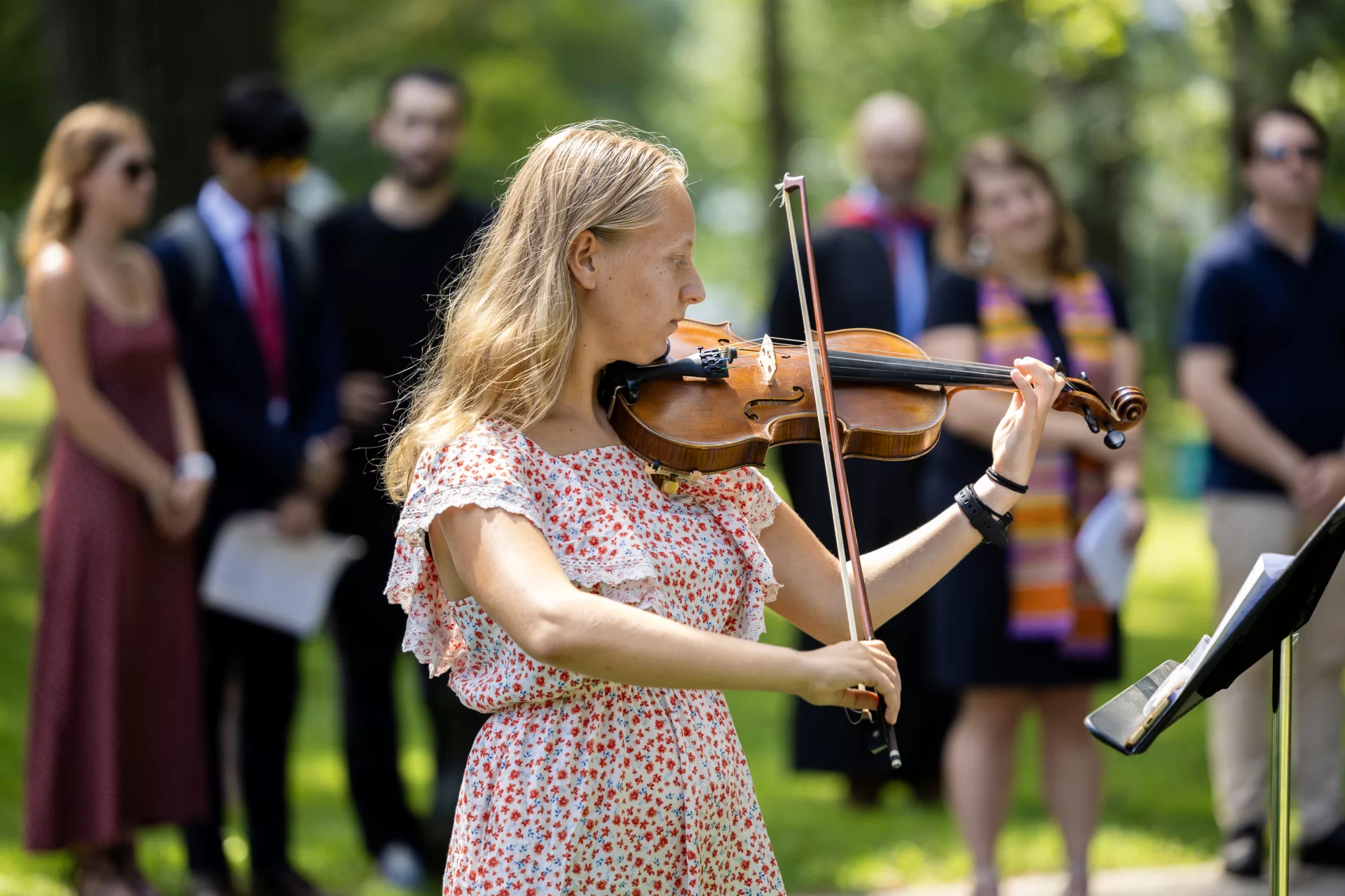
Now a senior politics major, Buescher served as Bates Student editor-in-chief in 2023–24 and writes a regular column for the Cleveland Plain Dealer. “I’ve been fairly impressed by the amount of news and news analysis that has been produced in such an incredibly fast and challenging environment,” Buescher told reporter Jaime Joyce. “And I’ve been impressed by the amount of just simple fact-checking that’s going on.”
On the other hand, Buescher could do without the mainstream media’s awkward attempts to report on the intersection of pop culture and politics, like covering the whole “Kamala is brat” meme. “Part of what makes the memes popular is the absurdity,” she says, “so trying to square the circle of the absurdity with the more serious political conversation is strange.”
Joyce writes that what young, engaged voters want “is serious political conversation: sit-downs with the presidential candidates, questions about their records and what they plan to do, if elected.”
Lena LaPierre ’26
A Mississippian’s journey from picking gentian plants in the Balkan mountains to drinking Moxie in Lisbon — Lewiston Sun Journal
In a first-person article for the Sun Journal, where she interned this summer, Lena LaPierre ’26 of Hattiesburg, Miss., wrote about the annual summer festival in nearby Lisbon Falls that has an unlikely focal point: the quirky New England soda Moxie.
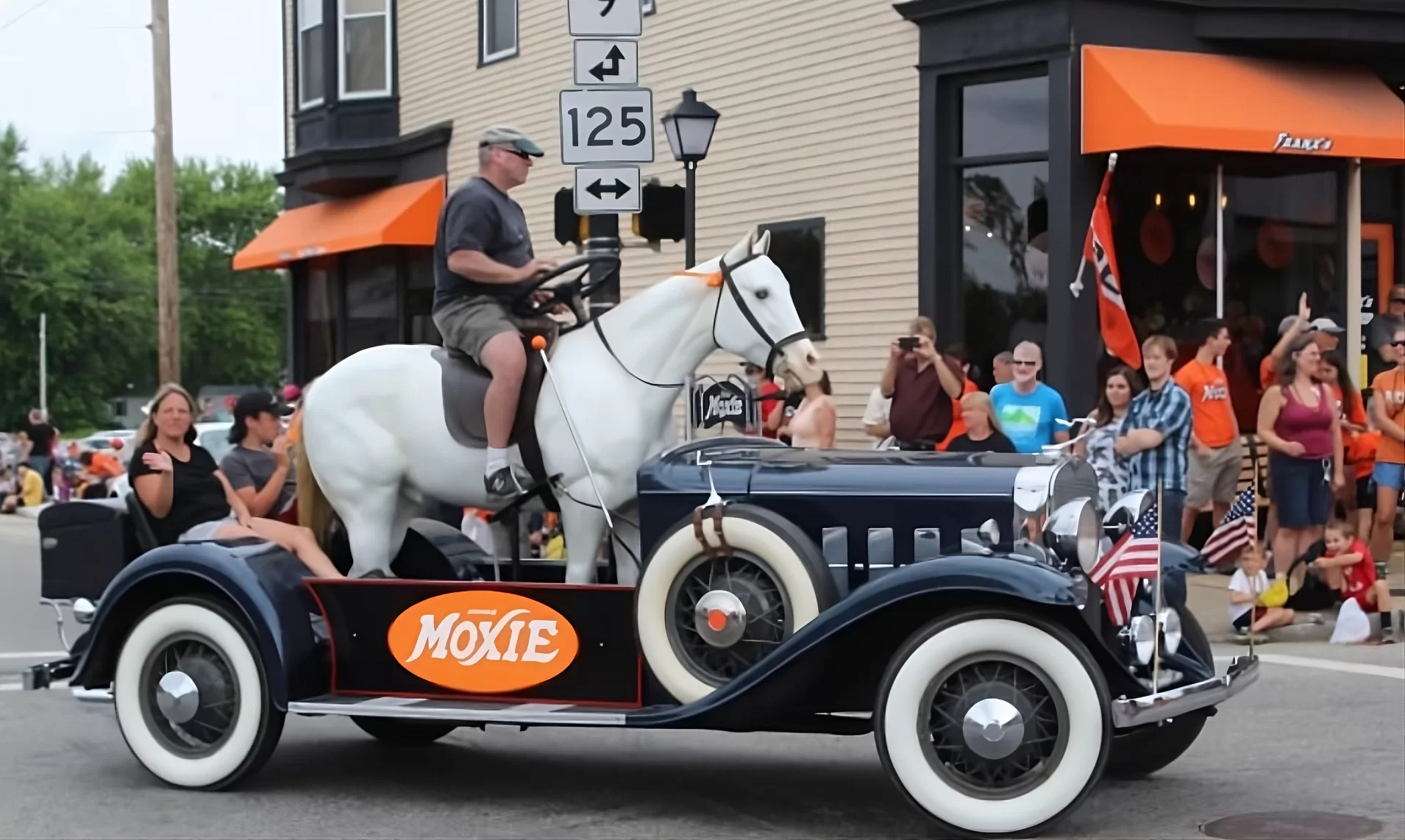
Warned by a classmate that the soda “tastes like the world’s worst cough syrup,” LaPierre instead took a liking to the drink. Perhaps her Bulgarian heritage was the reason, she wrote, recalling family visits see her grandmother in the village of Lyutibrod, Bulgaria, where “thousands of gentian plants” — which give Moxie its distinctive taste — grow in mountain woodlands.
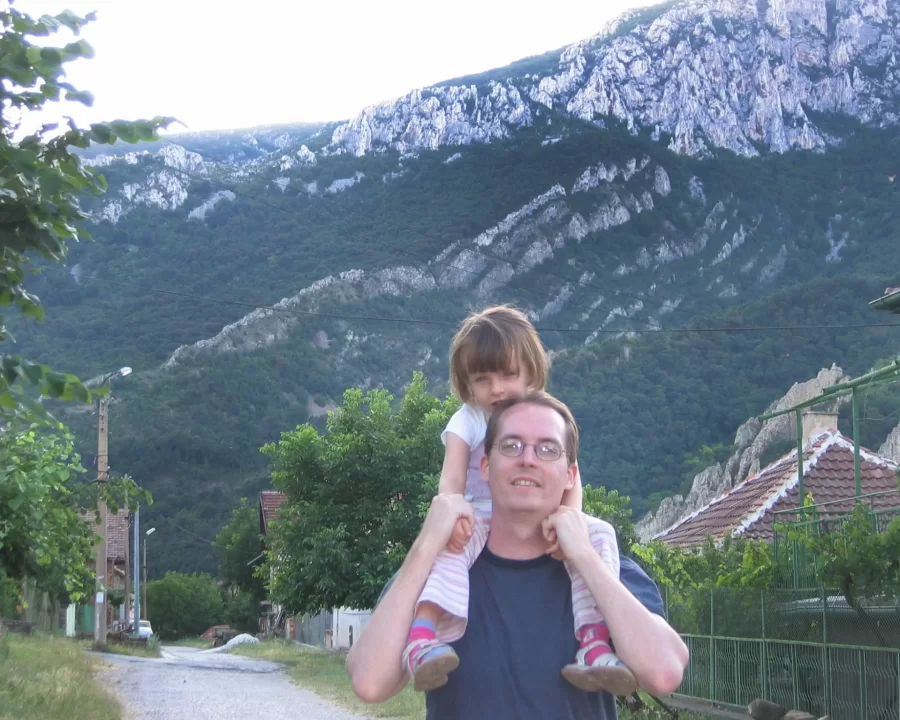
She recalled creating bouquets for her grandmother from the plant’s yellow flowers. And now, at a festival in Lisbon Falls, a drink made from gentian was helping locals “forge cherished, lifelong memories with the ones they love.”
Anders Landgren ’25
The very best college backpacks, according to college students — New York
New York magazine’s Strategist column turns to Bates for its list of the top backpacks for college students. Reporter Bella Druckman writes that “while North Face backpacks run the show at many colleges from coast to coast, at Bates College, students love Patagonia backpacks.”
Druckman reports that Anders Landgren ’25 of Boxford, Mass., chose a Black Hole style backpack his first year “after seeing that all his peers had one,” Druckman writes. “Three years later, the backpack is still going strong….Despite bearing the weight of his school supplies or things for weekend trips, the backpack’s straps don’t budge.”
“I got them to a pretty comfortable spot and haven’t had to adjust them since,” Landgren says.
